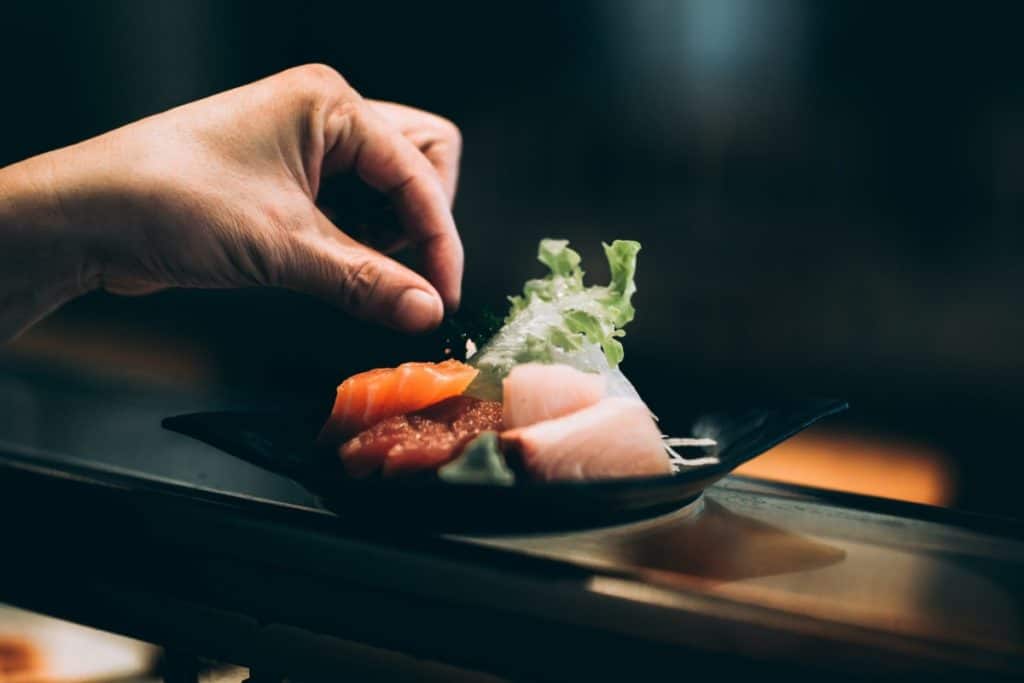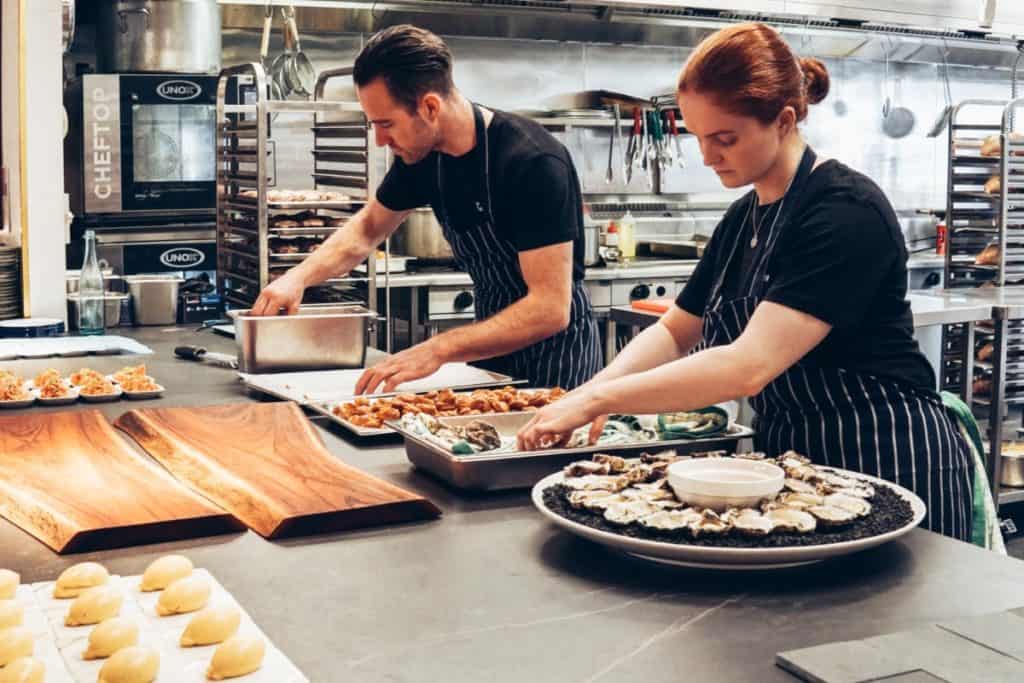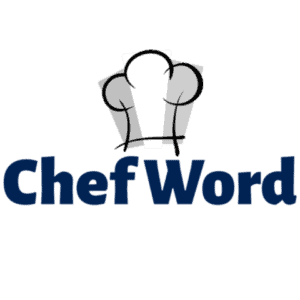
As a chef, I have attended several chef interviews where I am the one auditioning for the job. I’ve also been fortunate enough to be the interviewer to other aspiring chefs.
This article uses my real world experience to shine a light on chef interviews, providing hints and tips on chef interview success, so that you can be as prepared as possible for the big day!
In my experience, chef interviews usually last for a full day, with candidates being assessed on;
- An interview with the Head chef
- Carrying out general kitchen tasks
- One or more specific skills tests, such as filleting fish
- Helping cook during a lunch or dinner service
The head chef will typically interview the candidate first. Then they will place them in the kitchen to see how they prepare food, asses their knife skills and generally interact with the other chefs. Finally a skills test and service help finish out what can be a tiring day.
As well as providing readers with the most common chef interview questions and answers, I have also wrote advice about which assessments to expect, how to stand out from the pack, and even thrown in some chef interview hints and tips along the way.
Most Common Chef Interview Questions and Answers
I have had several chef interviews and also conducted several chef interviews, these are by far the most common questions you are going to be asked, along with a guide for the answers the head chef is expecting to hear
The morning of the interview day will usually start with the Head Chef asking you a set of questions so they can get a better understanding of you as a chef and your motives for wanting to join their kitchen. These interviews are conducted in a reasonably informal matter and generally involve a chat in the chef’s office.
asking you a set of questions so they can get a better understanding of you as a chef and your motives for wanting to join their kitchen. These interviews are conducted in a reasonably informal matter and generally involve a chat in the chef’s office.
At this point I need to point out rule number One. Even if readers take nothing else away from this post remember this at all times;
Golden Rule Number 1: Always call the Head Chef, “Chef” – unless he tells you otherwise. If he or she doesn’t directly say “call me ….” then stick with “Chef!”
Top Chef Interview Questions and Answers;
- Why do you want to be a chef? – A love of cooking, trying new foods and the buzz of the kitchen
 are great answers.
are great answers.
- Why do you want to work in this kitchen? – Do your homework on what makes that restaurant unique. Head chefs have their own style; if you can play to that you will have a great advantage. For example, “I love how you make great dishes without messing around with the food too much. Letting the ingredients speak for themselves.”
- What experience do you have? – If you have experience then this one is straight forward. If it is your first chef job; talk about the cooking you do at home (any photos on your phone that you can produce here is an excellent idea). Also any experience in kitchens, even as a KP is very useful.
- Where do you see yourself in 5 years? – A standard interview question. It’s a good idea to mention career progression
 at the prospective restaurant.
at the prospective restaurant.
- What is your favourite dish to cook? – This one can be a little tricky if caught out unprepared. Think of your favourite dish in advance and a reason why it is. Be prepared to cook it later on in the day if required (more on this later)
- Why do you want to leave your existing job? – Another standard interview question. This is best answered by saying that you would like to leave for career progression reasons. It may be obvious to a lot of readers but don’t say negative things about your current employer.
- Which chef do you admire? – You can go with a famous chef or a great option is to pick a high level chef who is a little less well known. This shows you are genuinely interested in the industry. Research online Michelin star restaurants and you’ll discover there are lots of great chefs that have a lower general public profile.
- How do you feel about working unsociable hours? – My advice is to be honest with this one. There is no point pretending you are happy to work split shifts
 , to then get offered the job and realise you hate them! Find a kitchen that fits the work life balance you would like.
, to then get offered the job and realise you hate them! Find a kitchen that fits the work life balance you would like.
Golden Rule Number 2: The main point to remember when answering any question is to show passion! Passion for cooking will get an inexperienced chef the job over an experienced one who doesn’t seem to love cooking anymore.
Quick side note; I remember a new Commis chef that started in the kitchen and on his first day he called the Head Chef, “mate!” The Head Chef turned around and glared for what seemed like eternity, not a great first day!
that started in the kitchen and on his first day he called the Head Chef, “mate!” The Head Chef turned around and glared for what seemed like eternity, not a great first day!
These answers should cover the main chef interview questions. However, this is only part of the chef interview process. Next we’ll look at the next part of the chef trial day which is spending time in the kitchen prepping food.

Do Chefs Have To Cook During An Interview?
During my chef interview day, I was placed on the veg section for a practical cooking assessment. This assessment was not so much a test, more of an informal look at what skills I had and if I was suited to that particular kitchen.
As mentioned in other posts, the range of abilities among qualified chefs is quite vast. It’s important when interviewing potential chefs that the Head chef can see first-hand what they can actually do.
is quite vast. It’s important when interviewing potential chefs that the Head chef can see first-hand what they can actually do.
This is great for people that maybe a little bit shyer than others. If you are not great at standard interviews then this is the place to shine. I would suggest that more emphasis is placed on this part of the interview day than any other.
The candidate will be given various food types to prepare alongside the chef de partie . The chefs will guide and help, and they are generally really friendly. What they are looking to see is enthusiasm, passion, knife skills and general understanding of basics.
. The chefs will guide and help, and they are generally really friendly. What they are looking to see is enthusiasm, passion, knife skills and general understanding of basics.
If you do not have basics, such as knife skills yet, don’t worry! That word passion comes into play again!
yet, don’t worry! That word passion comes into play again!
Golden Rule Number 3: Always be polite, respectful and show the existing chefs you are keen to learn.
Do I Need My Own Knives For A Chef Interview?
You do not need to bring your own knives for a chef interview. If you would like to, then that is ok, however, this is your first chef job then they you will be given a knife to use. There is no need to rush out and buy a new knife before you even have the job!
The only reason to buy a knife in advance is so that you can practice some basic knife skill. Victorinox make a great range of knives that are budget friendly but used by many chefs so won’t look out of place in a professional kitchen.
make a great range of knives that are budget friendly but used by many chefs so won’t look out of place in a professional kitchen.
During this prep time the Head Chef may present you with a skills test which will be different form the standard veg prep you are doing.
Do Chef Interviews Have A Skills Test?
As a chef I always expect to have to take part in a skills test as part of the interview process. That being said if the chef role you are applying for is a junior position, current skill levels are less important than passion and willingness to learn.
The Head chef may want to see some more advanced knife skills or knowledge (particularly if the role you are aiming for is more senior, such as a Sous chef position)
position)
Examples of chef interview skills tests are;
- Asked to fillet a whole fish – perhaps a sea bass or salmon. If you’ve not done this before then don’t panic. the chef will show you how one side of the fish and ask you to copy on the other side.
- Cook a piece of meat correctly – (Duck is a favourite for this test. If it is duck breast it should be placed into a cold pan on the stove top. Not a hot pan like with other meats, this allows the duck fat to render down as it cooks rather than searing and getting tough)
- Cook an omelette – This is an old favourite of lots of chefs. It’s always said that you can tell a lot about a chef by the way they cook an omelette. Definitely worth a practice before any interview day!
Golden Rule Number 4: If in any doubt, ask for guidance. The Head chef isn’t trying to trip you up. If a chef is able to ask for help and follow instructions this is just as good as if they knew how to do it in the beginning.
After all this prep work the potential commis chef may be asked to take part in the lunch service.
may be asked to take part in the lunch service.
Do You Have To Help With Service During A Chef Interview?
During a chef interview, we are not often asked to cook during service. We do not know the menu and this would be a pretty unfair test. Instead, we may be invited to help the head chef plate up food at the front of the kitchen.
With the Head chef’s, or executive chef’s guidance, the candidates will need to show that they can follow instructions. Importantly, they also need to demonstrate that they take pride in their work and can present a great plate of food for the customer.
As the candidate hasn’t worked in that kitchen before, and therefor doesn’t know the menu, it would be very difficult to help with the actual cooking during service. In fact they would probably just get more in the way!
There is no real experience needed for this. The Head chef will demonstrate how to plate up a dish and the candidate will need to copy it exactly.
In all kitchens the Head chef decides on the way a dish is presented and it’s up to the other chefs to replicate what the Head chef wants.
the Head chef decides on the way a dish is presented and it’s up to the other chefs to replicate what the Head chef wants.
Once lunch service is finished the final part of a chef’s interview day is usually to cook a dish of their choosing or within the guidelines given.

Do You Have To Prepare Your Own Dish During A Chef Interview?
During chef interviews I have often been asked to prepare a favourite dish for the head chef to taste. In my experience, having a few different dish ideas already planned in your head is a great idea.
If this is the case, be aware that the chances of the kitchen having everything you need is slim. Be prepared to change elements of your dish and don’t get too worried about it!
The more likely scenario (and the scenario I have always come across in my own career) is that the Head Chef will give the interviewee some produce and asks them to come up with a dish. This can be daunting especially if the chef doesn’t recognise some of the ingredients.
Golden Rule Number 5: When asked to cook a dish as part of the chef interview process, keep it simple. Remember that you are in an alien kitchen and will not be able to work as quickly as usual. Stick to basic concepts and execute them flawlessly. This shows confidence and underlying skills.
If this is your first chef interview this can be very daunting.
Try to have a few simple dishes that you know how to prepare in advance. If you haven’t been asked to cook an omelette yet then this is a great time to bring out the omelette you’ve been practicing! (link to BBC Good Food Omelette recipe here ) You could even jazz it up with a zingy salad on the side.
) You could even jazz it up with a zingy salad on the side.
I know this sounds very simple but the Head Chef is not expecting anything wonderful from a complete beginner. A willingness to try and get stuck in is far more important!
When the interview day is all finished, any chef will be desperate for a break but there are just a few final things to remember as you finish.
Bonus Tips For Your Chef Interview Day
As we are finishing our chef interview trial, it’s tempting to pack up and get out of there as quickly as possible. After all it has no doubt been an intense day. However, there are just a couple of points that will really seal the deal on getting you the chef job you want.
- Wipe down your cooking area and any equipment you have used – leaving any mess behind you for others to clear up is a big no no.
- Thank the chefs you’ve been working with for their help – the head chef will go to these chefs for their evaluation so it’s important to make a good impression.
- Thank the Head Chef – although it’s the end of a long day, maintain that passion and enthusiasm. Smile and show that you enjoyed yourself!
- Ask for feedback – this is a great way to get an instant idea about how the day has gone. Take all feedback in your stride as it is all part of the learning process.
Golden Rule Number 6: If a chef can maintain passion and enthusiasm throughout the entire day’s interview they stand an excellent chance of getting the position.
Final Thoughts
As readers can see, a chef interview trial day can be intense, with many factors to consider. If you are unsuccessful then don’t despair as chefs will keep contact details of candidates that they didn’t select and may contact them again in the near future when a position becomes available!
I hope these tips and advice have been valuable and readers are able to put them into practice at their next interview day.
When you do land that first job, remember to check out these tips for your first day as a chef, and also what to wear!
for your first day as a chef, and also what to wear!
Fingers crossed!
